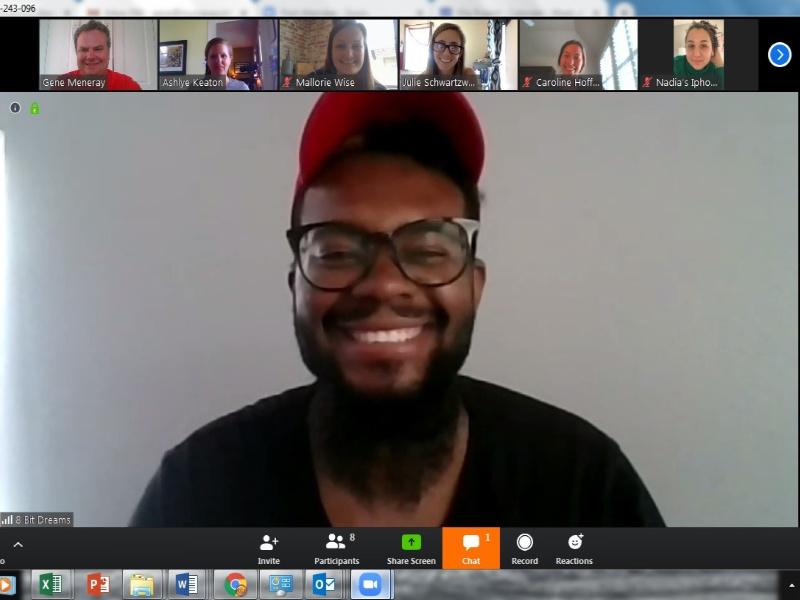Virtual lawyering: Law students work pro bono to ease impact of COVID-19
Lawyers generally meet their clients in person when they need legal advice.
That’s true, too, of law students learning the legal ropes while helping clients of local non-profits that provide free legal counseling to New Orleans’ most vulnerable.
But meeting clients has been a challenge under COVID-19 restrictions, said Ashlye Keaton, Director of the non-profit Ella Project, which provides legal help to the arts and artistic community in New Orleans.
“It took us about a week or so to get things organized, but now, we aren’t missing a beat,” said Keaton, comparing the COVID-19 pandemic to the aftermath of Katrina. “We have been through crises before; the circumstances are different but we know how to be flexible and serve our clients. In fact, we are busier than usual as more of our clients need the help.”
Tulane Law students have been working remotely with Keaton and the ELLA Project’s clients, logging pro bono hours they need to graduate. Tulane, the first law school in the nation to require mandatory pro bono work as a graduation requirement, has had to be nimble, too. Some spring pro bono work dried up as mandatory social distancing requirements were set in place in Louisiana.
Faculty and staff turned to organizations that would need the help to keep pro bono hours going. One such group was the Ella Project, which routinely works with Tulane Law students on client cases, said Stacy Seicshnaydre, Associate Dean for Experiential Learning and Public Interest Programs.
In the past few weeks, students whose planned pro bono work dried up have started working with such groups as Louisiana Appleseed, Chesapeake Legal Alliance, the New Orleans Pro Bono Project and the Lagniappe Law Lab, among others.
“So many of our students are already committed to pro bono as a way of life—they are well positioned to respond in the current crisis,” said Seicshnaydre.
At the Ella Project, students meet with clients each Friday and go over their needs. Keaton says that at the moment her organization is representing primarily “gig” workers – musicians, artists, performers and others who had contracts that could not be fulfilled.
“So many of our workers live off the cash economy. We have been helping our clients navigate all of these new constraints, not just disputes or contractual issues, but helping them access various relief resources that might apply to them,” Keaton said.
For students, Keaton said, the fact that the ELLA Project has more work than ever is helping them stay connected even as they are living somewhat isolated.
One such student is Julie Schwartzwald, a second-year law student at Tulane.
“To me, it’s a good reminder that this community will be here when this is over, and it’s great to still be connected and to do something that feels very productive and is outside of my own four walls,” she said. “It’s definitely helped me maintain a little normalcy.”
Schwartzwald, who plans to go into maritime and environmental law after graduation, has enjoyed the work more than she expected. She has been working with artists on intellectual property issues, learning how to set up nonprofits, create an LLC, all “accessible and practical legal skills,” she said.
“These are the kind of skills that even though they aren’t what I see as my career, knowing how to do these things makes me a better lawyer,” Schwartzwald said. “I’d definitely want to do this again.”
She would like to work with the Ella Project in the fall, she said, since her plans are to stay in New Orleans beyond graduation in 2021. “It’s a cool way to stay plugged in to an aspect of our city that is so important to the culture of New Orleans.”

